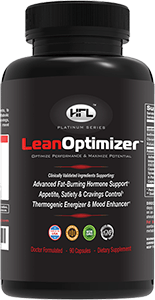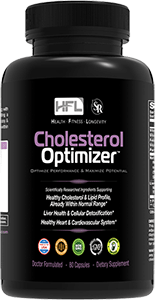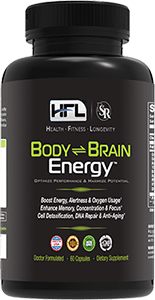A sluggish metabolism can make it challenging to maintain energy levels, manage weight, and feel your best. If you’re struggling with a slow metabolism, the good news is there are compelling and natural ways to give it a boost.
Here’s a comprehensive guide to understanding metabolism and improving it for better health and vitality.
What Is Metabolism and Why Does It Matter?
Metabolism refers to the chemical processes in your body that convert food into energy. This energy powers everything from breathing to digestion and maintaining your body temperature. When your metabolism is slow, your body burns fewer calories, which can lead to weight gain, fatigue, and other health issues.
Signs of a Slow Metabolism
- Persistent fatigue
- Difficulty losing weight despite healthy eating and exercise
- Weight gain without significant changes in diet or activity
- Feeling cold often
- Dry skin and hair
- Digestive issues like constipation
New Ways to Boost Metabolism Naturally
1. Prioritize Protein at Every Meal
- How it Helps: Protein has a high thermic effect, meaning your body burns more calories digesting it compared to fats or carbohydrates. Including lean proteins like chicken, fish, tofu, or legumes at each meal can keep your metabolism active.
2. Strength Training
- Why It Works: Building muscle increases your resting metabolic rate (RMR) since muscle tissue burns more calories than fat, even at rest. Aim for strength training exercises like weightlifting or resistance bands 2-3 times a week.
3. Stay Hydrated
- The Science: Dehydration slows your metabolism. Drinking enough water boosts your body’s calorie-burning ability. Aim for at least 8 cups of water daily, or more if you’re active.
4. Green Tea or Coffee
- Natural Boosters contain caffeine and antioxidants to enhance fat oxidation and metabolic rate. Green tea also contains catechins, which synergize with caffeine to boost metabolism.
5. Get Enough Sleep
- How it Impacts Metabolism: Poor sleep disrupts your hormonal balance, reducing metabolism and increasing cravings for unhealthy foods. Aim for 7-9 hours of quality sleep per night.
6. Eat Regular Meals
- Why It’s Important: Skipping meals can help your body conserve energy and slow metabolism. Eating small, balanced meals every 3-4 hours keeps your metabolism running efficiently.
7. Spice Things Up
- Add Chili Peppers: Capsaicin, found in spicy foods like chili peppers, can slightly increase your metabolic rate and promote fat burning. Add a little spice to your meals for a natural metabolic boost.
8. Cold Exposure
- Try Cold Showers or Ice Baths: Brief exposure to cold temperatures can activate brown fat, which burns calories to generate heat, enhancing metabolism.
9. Manage Stress
- Why It Matters: Chronic stress increases cortisol levels, which can slow metabolism. Meditation, deep breathing, or yoga can help manage stress and improve metabolic health.
10. Consider a Vitamin Boost
- Essential Nutrients: Vitamins and minerals like B vitamins, magnesium, and iron are crucial for a healthy metabolism. Ensure your diet includes nutrient-rich foods like leafy greens, nuts, seeds, and whole grains.
Foods That Boost Metabolism
- Lean proteins (chicken, fish, eggs)
- Whole grains (quinoa, oats, brown rice)
- Leafy greens (spinach, kale)
- Nuts and seeds (almonds, flaxseeds)
- Fruits like grapefruit, berries, and apples
- Spices like turmeric, cinnamon, and cayenne.
Does Aging Affect Metabolism, and How Can You Counteract It?
As we age, many notice that maintaining a healthy weight or staying energetic becomes more challenging. A key factor behind this is a gradual slowdown in metabolism, the body’s process of converting food into energy. Understanding how aging affects metabolism and learning ways to counteract these changes can help you maintain a healthy, active lifestyle at any age.
How Aging Affects Metabolism
Loss of Muscle Mass
- What Happens: Starting as early as your 30s, the body naturally begins to lose muscle mass in a process called sarcopenia. Muscle tissue burns more calories than fat, even at rest, so a decrease in muscle reduces your resting metabolic rate (RMR).
- Impact on Metabolism: With less muscle, your body requires fewer calories to function, meaning it burns fewer calories at rest.
Changes in Hormones
- What Happens: Hormonal shifts significantly impact metabolism, especially during middle age. For example:
- In women, menopause leads to a decline in estrogen, which is associated with an increase in fat storage, particularly around the abdomen.
- A gradual decrease in testosterone levels can contribute to muscle loss and fat gain in men.
- Impact on Metabolism: These hormonal changes slow down metabolic processes, making it harder to burn calories efficiently.
- What Happens: Hormonal shifts significantly impact metabolism, especially during middle age. For example:
Reduced Physical Activity
- What Happens: Many people become less physically active as they age due to busy schedules, health issues, or reduced energy levels.
- Impact on Metabolism: A sedentary lifestyle further compounds the metabolic slowdown, as regular physical activity is crucial for maintaining muscle mass and metabolic rate.
Slower Cellular Processes
- What Happens: Aging affects cellular efficiency, reducing the body’s ability to process energy. Mitochondria, the “powerhouses” of cells, become less effective at converting nutrients into energy.
- Impact on Metabolism: This contributes to a slower overall metabolism, making it easier to gain weight even if dietary habits remain unchanged.
How to Counteract Age-Related Metabolic Slowdown
While aging is inevitable, specific lifestyle changes can manage its effects on metabolism. Here’s how:
1. Build and Maintain Muscle Mass
- Why It’s Important: Muscle burns more calories than fat, even at rest. Maintaining or building muscle through strength training can help offset the decline in metabolic rate.
- What to Do: Incorporate strength training exercises, such as weightlifting, resistance bands, or bodyweight exercises (like push-ups or squats), at least 2-3 times per week.
2. Stay Physically Active
- Why It’s Important: Regular physical activity boosts metabolism, supports cardiovascular health, and helps maintain muscle mass.
- What to Do: Aim for at least 150 minutes of moderate-intensity aerobic exercise per week, such as brisk walking, cycling, or swimming. Add high-intensity interval training (HIIT) for an extra calorie-burning boost.
3. Focus on Protein Intake
- Why It’s Important: Protein helps repair and build muscle tissue while requiring more digestion energy than fats and carbohydrates.
- What to Do: Include lean proteins like chicken, fish, eggs, tofu, and legumes in every meal. A general guideline is to consume 0.8-1 gram of protein per pound of body weight daily.
4. Stay Hydrated
- Why It’s Important: Dehydration can slow down metabolism. Water is essential for digestion and other metabolic processes.
- What to Do: Drink at least 8-10 cups of water daily. Add more if you exercise or live in a hot climate. Foods with high water content, such as cucumbers and watermelon, can also help.
5. Prioritize Sleep
- Why It’s Important: Sleep is critical in regulating metabolism and appetite hormones like leptin and ghrelin. Poor sleep can disrupt these hormones, increasing hunger and reducing calorie burning.
- What to Do: Aim for 7-9 hours of sleep daily. Create a consistent sleep schedule and limit screen time before bed to improve sleep quality.
6. Manage Stress
- Why It’s Important: Chronic stress raises cortisol levels, which can lead to fat storage, especially around the abdomen.
- What to Do: Practice stress-reducing techniques such as yoga, meditation, deep breathing exercises, or regular natural walks.
7. Eat Smaller, Frequent Meals
- Why It’s Important: Eating small, balanced meals throughout the day keeps your metabolism active and prevents the body from going into “starvation mode.”
- What to Do: Include a mix of protein, healthy fats, and complex carbs in your meals. Avoid skipping meals, as it can slow metabolism further.
- 8. Monitor and Adjust Your Calorie Intake
- Why It’s Important: As metabolism slows, your calorie needs decrease. Eating the same amount as you did when you were younger can lead to weight gain.
- What to Do: Use a calorie calculator to estimate your daily needs based on your activity level and adjust your portions accordingly.

Weight Loss, Appetite Suppression & Boost Metabolism
Lean Optimizer™ Improve “Fat Burning” Hormones & Speed Up Metabolism. Suppress Appetite & Burn Stubborn Fat

Block Carbs, Sugars, Fats & Improve Digestion
Cholesterol Optimizer™ Improve Cholesterol, HDL/LDL Ratios & Lower Fatty Triglycerides. Decrease Homocysteine. Cleanse & Repair Liver

Physical Energy, Mental Focus, Nootropic Based, Brain Health
Body⇌Brain Energy™ Increase Whole-Body Energy. Improve Mental Performance & Memory. Increase Stamina & Neurotransmitters



Rest and recovery are as important as your workouts. It’s during these periods that your muscles repair and grow stronger. Never skip your rest days!
I’ve struggled with a sluggish metabolism for years, but this product has completely transformed my body
Regular exercise, including both cardio and strength training, can help increase muscle mass and elevate your metabolic rate
These metabolism-boosting tips are a game-changer! 💪 Excited to kickstart my day with these simple steps. Thanks for the awesome advice!